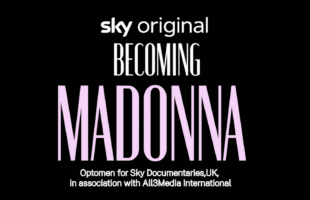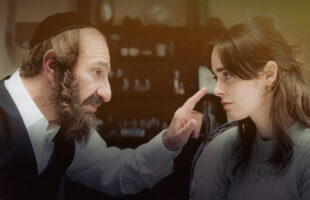The factual content business is in great shape. Factual networks have woken up to drama being the success of historical series because of their general entertainment counterparts – from The Tudors and Downtown Abbey to Boardwalk Empire and numerous others. From one-off documentaries to global series formats, factual programming is beginning to dominate primetime schedules. The genre has evolved, dipping into lifestyle and presenter-led entertainment. The factual content business is split into two main forms. The first is the reality-factual entertainment genre, which is typically taken to international markets for format or series acquisitions. This form of the genre has since been a key part of television schedules.
The other is generally referred to as specialist factual – where science, natural history, history and culture are some of the typical topics covered and are produced in shorter runs with higher budgets. The funding for these productions is largely based on co-productions.
We are increasingly seeing factual channels crossing over into the realm of scripted series to tell real-life stories. The genre’s emergence as a primetime tentpole on channels such as History, Discovery and National Geographic Channel is a significant development for the TV industry. A+E Networks has two distinct channel offerings – HISTORY and H2. Previously documentary-focused since its launch in 2007, A+E Network’s HISTORY channel is on the search for more scripted projects in order to get the ratings required to appeal to a wider audience and advertisers, evolving into a factual entertainment channel. Sons of Liberty was launched at MIPCOM last year; the six-hour miniseries tells the story of revolutionaries Sam Adams, John Adams, Paul Revere, John Hancock and Joseph Warren, and the role they play in shaping America. Its other real life-driven series like Storage Wars and Duck Dynasty have also been successful internationally because they are not contrived. Although the series may not be local, the shows still work because they tap into universal themes recognised by audiences – take Sons of Liberty for example. Though American, a situation involving a revolution is a global phenomenon and has happened in almost every democratic country in the world. Not only do these programmes have authentic situations which audiences respond to, but they are also formats which work for international networks and buyers due to its repeatability and great versatility around schedules. A+E Networks has been amongst the trend-setters when it comes to merging historical information into the most entertainment-driven and dramatic ways.
“We have really changed the way viewers perceive a channel with the name “HISTORY”. We’ve broken new ground to bring the fascinating, engaging world of real people and historical events to life in ways that engage massive amounts of audiences around the world. It’s a fact that the greater your entertainment value, the greater your audience. In this way, we entertain while we inform and educate a big number of people,” said Michele Schofield, SVP, Programming & Production, A+E Networks Asia.
However, is factual drama a threat to the classic documentary? Woodcut Media’s CEO and Jt Creative Director, Kate Beal thinks not. Factual drama is simply another way of telling great stories. There is a place for both in the market and I think they complement each other well. Everyone consumes television differently and factual drama will enable producers to reach an audience who perhaps wouldn’t traditionally sit down and watch a classic documentary. It’s another way to learn about the world around us and that can only be a good thing.”
While HISTORY has chosen to use an entertainment-driven strategy to add on to their current audience share, the network has been carefully selecting its subjects so as not to alienate the other portion of the audience. In 2013, A+E Networks launched H2, a channel dedicated to the more traditional factual series.
“H2 is a dedicated destination for the information seeker and its popularity has proven that there is an audience appetite for the more information-driven, classic documentary series and specials. At the same time, we’ve broadened the history genre and attracted more people to HISTORY. Dramatised series entertain and engage the broadest audience possible, offering an awareness and understanding for historical information and time periods in history,” she added.
Schofield’s advocacy of factual entertainment is echoed by Beal. “I think the international audience is becoming more sophisticated at the same time as technology enables us to experiments with new forms. With the extraordinary rise of blue chip drama in the past ten years, it’s only natural that factual programming will follow. The market for viewers is competitive and we can’t rely on traditional audiences. We need to broaden our thinking on how to appeal to a wider audience and this is a very positive trend and we as producers must get more creative! That is only going to be a good thing for television,” she said.
This trending success of factual programming has paved the way for factual and drama production communities scope out opportunities to pitch the next big drama project to other factual networks. The competition comes in the form of Discovery Networks, which launched its first fully scripted miniseries – Klondlike – a co-production with Canada’s Entertainment One and Nomadic Pictures.
It tells the intertwining story of a group of individuals trying to strike it rich in the Klondike region during the 1890s Gold Rush. The network is looking at more potential scripted projects. Though scripted will be part of the mix, there will not be a be a wholesale change in Discovery’s approach, as it will still remain a factual network.
Vikram Channa, Vice President, Production and Development, Discovery Networks Asia-Pacific said, “The documentary genre is an intriguing place today.
What is going on is what one might term as ‘hybridisation’. In order to create the hit shows, the documentary doctors are mixing and matching different successful genres in their creative labs to come up with unique and fresh perspectives with which to see reality. It’s come a long way from a time we described documentary genres quite simply as factual or lifestyle, even wildlife or just culture.”
Discovery’s latest TLC series, Nomad Chef, is a survival genre paired with travel and cuisine, and have been mixing up more programmes such as signatures series You Have Been Warned, where a clip show is married with popular science. In What Happened Next, natural history is match-made with extreme jobs. Be it Jeremy Wade from River Monsters, the crew of Deadliest Catch or Bear Grylls from Man Vs Wild, these talents make the viewing experience more personal by being hands-on and diving right into the action.
“Using strong characters to tell the narrative is becoming increasingly popular across Asia. The storytelling has also become much more visually driven. However, it still tends to be told through the use of formal voiceovers,” added Channa.
Echoing this, Leif Coorlim, Executive Editor of The CNN Freedom Project said, “What is essential is getting to the heart of a story and telling it objectively and authentically.
That can be difficult sometimes when you’re facing tough deadlines, translation difficulties and a number of competing perspectives within the same narrative.”
Similarly for National Geographic, while part of the rationale for factual drama is the pursuit for ratings, the network shares the opinion that the use of fiction can reinforce the factual mission rather than abate it. Killing Lincoln, made by Scott Free and LA-based Herzog & Co for National Geographic is a two-hour TV movie recreated and features dramatised events surrounding the 1865 shooting of the U.S. President. It was based on Bill O’Reilly and Martin Dugard’s best-selling book, Killing Lincoln: The Shocking Assassination that Changed America Forever.
With the likes of A+E Networks and its rivals Discovery Networks and National Geographic moving increasingly towards a character-led, repeatable series, factual specialist Off the Fence (OTF) has also had to diversify in that direction. However, there has been a decline in the international co-productions which companies such as OTF used to thrive upon. Increasingly, broadcasters are putting money into home-grown productions to attract viewers, resulting in a struggle for meandering eyeballs.
Jocelyn Little, Managing Director, Beach House Pictures said, “The biggest challenges for documentary makers is funding. Getting the amount required to make and tell amazing and unique stories is difficult. In Asia, the cost of producing 30 or 60 minute programmes vary wildly, but expectations from broadcasters are always high. Funding levels are increasing in certain markets or for specific genres but it remains a great challenge for producers to make international quality documentary series on sometimes shoestring budgets.”
The route to drama is fraught with danger and costs for factual producers eyeing on dipping into the drama route.
Though a tempting proposition, most factual drama series are greenlit to go into script stage, and there may be many more stages the project goes through which incurs unwanted costs.
“Development is also a big challenge. In the UK or U.S., some programmes are in development for over a year.
In Asia, there’s still a tendency to cut development short or incorporate it into pre-production. Broadcasters definitely have their own challenges and hours to fill in their programming slots but this also has to be balanced with in-depth research and development so we get the best ideas and people to tell our stories,” Little added.
BBC Worldwide (BBCWW) has also been involved in exploring factual drama with projects such as 37 Days, a three-parter on the complex story of the countdown to the First World War. Aside from the accuracy of the factual drama, the shift has been instead towards the drama direction, scriptwriting and casting. Broadcasters are also looking for more stand-out, one-off specials which have some sort of hook to market the show.
Documentaries linked to anniversaries – such as All3Media’s The Battle of Britain which sold to AK Entertainment Korea to celebrate the 70th Anniversary of the event – are classic examples.
In Asia, the entertainment industry is growing through new platforms, services and devices that present new opportunities for content providers. Fully aware of this reality, Spark signed a joint venture with Astro Malaysia and Singapore-based Moving Visuals International (MVI) at MIPCOM last year. The factual channel has plans to launch in Asia in the first half of this year, following successful forays into South Africa and Central and Eastern Europe. It will be Asia’s first HD and factual channel, and will “empower the local community of producers and filmmakers by offering an alternative platform to showcase their documentaries and also drive training initiatives”.
Rohana Rozhan, CEO of Astro Malaysia said, “With the growing interest in Asian content, there is a huge opportunity in Asian factual content that resonates not only with audiences in Asia but around the world. In line with our strength in the creation of IPs and content brands we believe that the aggregation of Asian-centric stories and factual content in an Asian branded documentary channel is timely and has tremendous potential.”
Leveraging on the strengths of its joint venture partners, Spark Asia will see a ramping up of its local production strategy. Spark Asia will contain a wide range of both linear TV and digital content that will resonate among audiences across Asia. Though most of its programming is still to be confirmed, the channel will air content in genres spanning science & technology, exploration, history, environment, nature and wildlife. It will also source its programming from the vast library of Autentic and ZDF Enterprises while promoting Asian documentary filmmaking.
It is clear that scripted programming on factual networks has been successful, and broadcasters can look forward to seeing more in the coming years.








